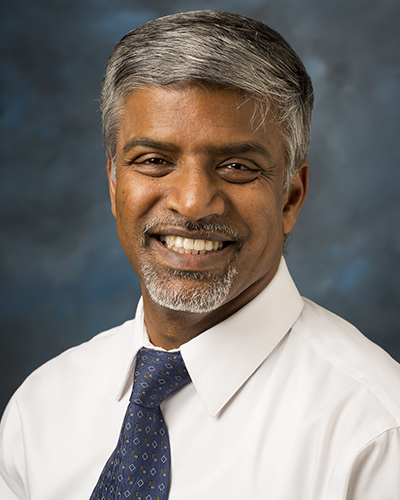
Kala Chand Seal joined LMU’s College of Business Administration in 1990 and is a professor of applied information management systems (AIMS). His areas of expertise include spreadsheet modeling and analysis, systems analysis, website planning and mobile commerce business models. Kala has published in multiple international journals and has presented his research at numerous conferences. He played an instrumental role in creating a dedicated lab space for the AIMS program by working with two colleagues in obtaining a National Science Foundation grant.
Kala currently teaches several courses at the MBA level including “Management Information Systems,” “Operations and Decision Making” and “Business Intelligence.” In addition, he serves as director of the Comparative Management Systems (CMS) program, a popular global study option which gives MBA students firsthand exposure to global management concepts and practices. CMS requires a year of study and concludes with travel to several countries where students meet with business executives, visit local attractions and learn about the business environment, social culture and customs.
Through CMS, Kala has been fortunate to visit some of the most beautiful and exotic places in the world. His favorite destinations include Stockholm, Sweden; St. Petersburg, Russia; Switzerland, London, Rome and Paris. Places on his wish list: Cape Town, South Africa and Cairo, Egypt. When he’s not traveling all over the globe, Kala enjoys reading and creating photobooks of his overseas adventures.
Kala was born and raised in India and came to the U.S. in 1986 to complete his graduate studies. He earned his Ph.D. and M.S. degrees from the University of Texas at Dallas and has a bachelor’s degree in mechanical engineering from the Indian Institute of Technology, Kharagpur.
Prior to joining LMU, Kala worked an assistant executive engineer for an oil and natural gas company in India. He’s also served as a consultant for NASA’s Jet Propulsion Laboratory (JPL) as well as a corporate trainer for a certification program at Mattel.
As Kala marks 25 years at LMU, he reflects on what he loves most about the university – the students and faculty. He says the faculty at LMU are passionate about teaching and really want their students to learn. Over the years, he’s developed strong relationships with his colleagues and regularly keeps in touch with his former students. He’s currently working on a research project with fellow AIMS professors Linda Leon and Zbigniew Przasnyski on identifying gaps between in-demand skills and what is being taught in universities. The team is using text mining techniques to uncover latent meanings from unstructured text.
“The idea is to see if analytics courses being offered at universities are actually providing the desired skills needed in the marketplace,” said Kala.
One thing’s for certain: Kala chose the right industry. Given the increased importance of information technology in the workplace, there is a growing need for IT professionals who have expertise in software, hardware and communications technologies. For AIMS graduates, job opportunities are excellent and salaries are above average.
“Information technology is very popular in developing countries – this is where the money is,” said Kala. “Everything comes out of technology nowadays. If you want to be a part of the future, then this is the area you should get into.”



